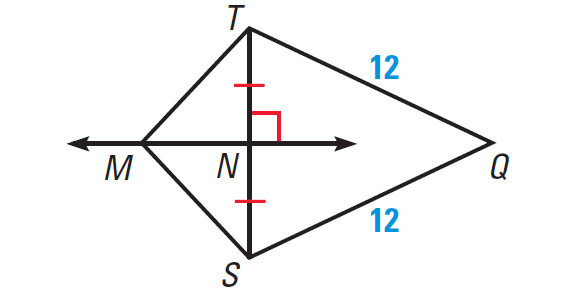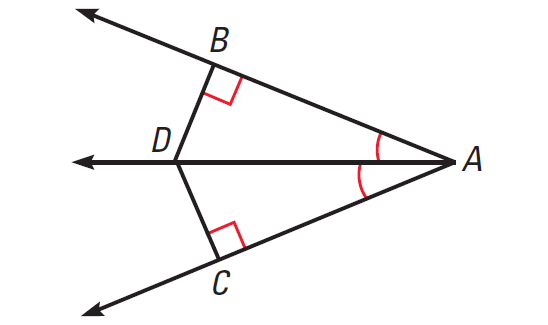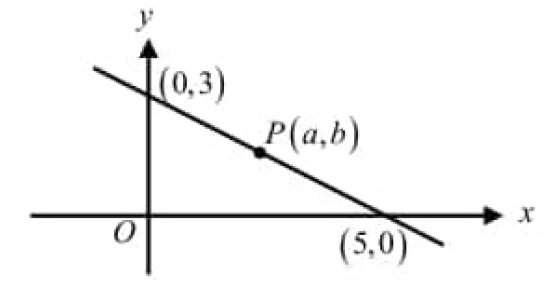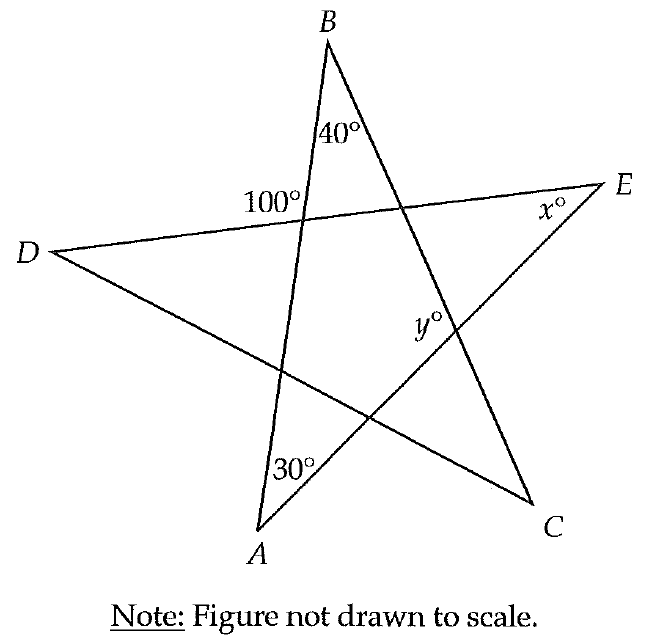PERPENDICULARS AND BISECTORS WORKSHEET
Question 1 :
In the diagram shown below, MN is the perpendicular bisector of ST.

(a) What segment lengths in the diagram are equal ?
(b) Explain why Q is on MN ?
Question 2 :
In the diagram shown below, D is on the bisector of ∠BAC, DB ⊥ AB, DC ⊥ AC. Prove that DB = DC.

Question 3 :
Some roofs are built with wooden trusses that are assembled in a factory and shipped to the building site. In the diagram of the roof truss shown below, we are given that AB bisects ∠CAD and that ∠ACB and ∠ADB are right angles. What can be said about BC and BD ?


Answers
1. Answer :

(a) What segment lengths in the diagram are equal?
(b) Explain why Q is on MN?
Part (a) :
MN bisects ST, so NS = NT.
Because M is on the perpendicular bisector of ST, by Perpendicular Bisector Theorem,
MS = MT
The diagram shows that QS = QT = 12.
Part (b) :
QS = QT, so Q is equidistant from S and T.
By Converse of the Perpendicular Bisector Theorem Q is on the perpendicular bisector of ST, which is MN.
2. Answer :

Given :
D is on the bisector of ∠BAC, DB ⊥ AB, DC ⊥ AC
To Prove :
DB = DC
Plane for Proof :
Prove that ΔADB ≅ ΔADC.
Then conclude that DB ≅ DC, so DB = DC.
Proof :
By the definition of an angle bisector, ∠BAD ≅ ∠CAD.
Because ∠ABD and ∠ACD are right angles,
∠ABD ≅ ∠ACD
By the Reflexive Property of Congruence, AD ≅ AD.
By the AAS congruence theorem,
ΔADB ≅ ΔADC
Because corresponding parts of congruent triangles are congruent,
DB ≅ DC
By the definition of congruent segments,
DB = DC
3. Answer :

Because BC and BD meet AC and AD at right angles, they are perpendicular segments to the sides of ∠CAD.
This implies that their lengths represent the distances from the point B to AC and AD.
Because point B is on the bisector of ∠CAD, it is equidistant from the sides of the angle.
So, BC = BD, and you can conclude that So,
BC ≅ BD
Kindly mail your feedback to v4formath@gmail.com
We always appreciate your feedback.
©All rights reserved. onlinemath4all.com
Recent Articles
-
Digital SAT Math Problems and Solutions (Part - 134)
Apr 02, 25 12:40 AM
Digital SAT Math Problems and Solutions (Part - 134) -
SAT Math Resources (Videos, Concepts, Worksheets and More)
Apr 02, 25 12:35 AM
SAT Math Resources (Videos, Concepts, Worksheets and More) -
Digital SAT Math Problems and Solutions (Part 135)
Apr 02, 25 12:32 AM
Digital SAT Math Problems and Solutions (Part 135)

